-
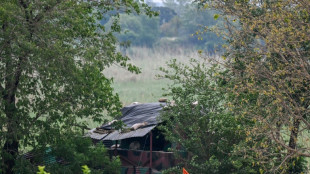 Lives on hold in India's border villages with Pakistan
Lives on hold in India's border villages with Pakistan
-
Musk's dreams for Starbase city in Texas hang on vote
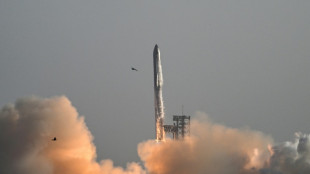
-
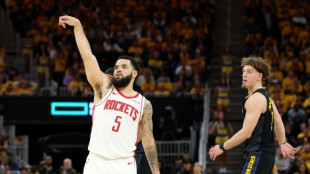 Rockets down Warriors to stay alive in NBA playoffs
Rockets down Warriors to stay alive in NBA playoffs
-
Garcia beaten by Romero in return from doping ban
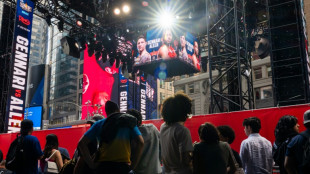
-
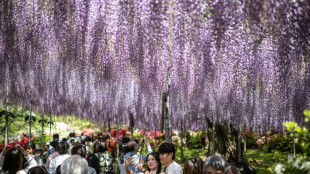 Inflation, hotel prices curtail Japanese 'Golden Week' travels
Inflation, hotel prices curtail Japanese 'Golden Week' travels
-
Trump's next 100 days: Now comes the hard part
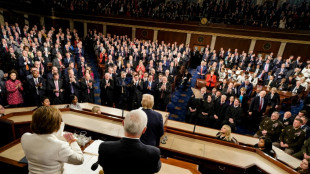
-
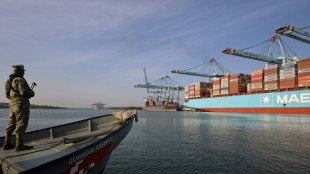 Mexican mega-port confronts Trump's tariff storm
Mexican mega-port confronts Trump's tariff storm
-
Trump's tariffs bite at quiet US ports
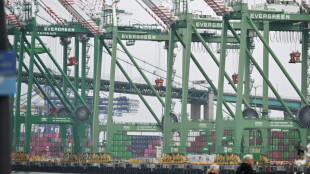
-
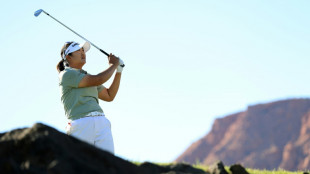 Ryu stretches lead at LPGA Black Desert Championship
Ryu stretches lead at LPGA Black Desert Championship
-
Singapore votes with new PM seeking strong mandate amid tariff turmoil
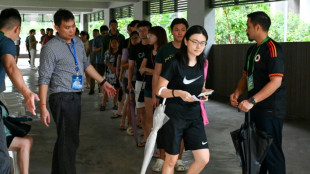
-
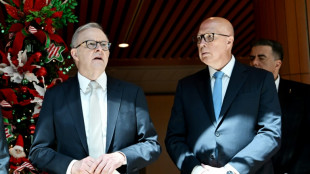 Five things to know about the Australian election
Five things to know about the Australian election
-
Scheffler fires 63 despite long delay to lead CJ Cup Byron Nelson
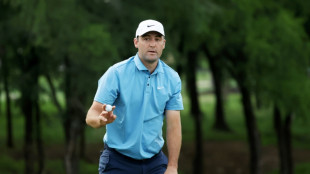
-
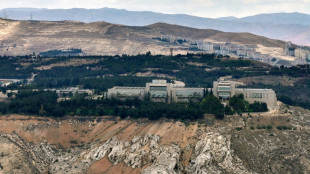 Israel launches new Syria strikes amid Druze tensions
Israel launches new Syria strikes amid Druze tensions
-
Finke grabs 400m medley victory over world record-holder Marchand
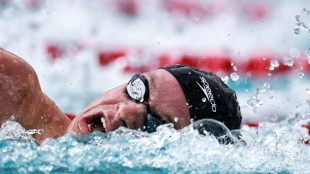
-
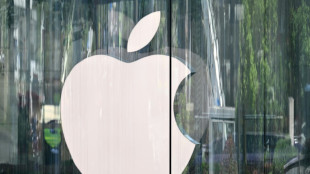 Apple eases App Store rules under court pressure
Apple eases App Store rules under court pressure
-
Polls open in Australian vote swayed by inflation, Trump
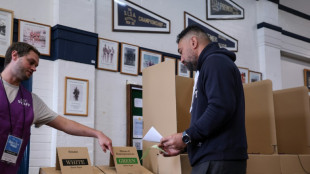
-
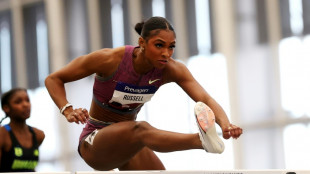 Russell clocks second fastest 100m hurdles in history at Miami meeting
Russell clocks second fastest 100m hurdles in history at Miami meeting
-
Germany move against far-right AfD sets off US quarrel
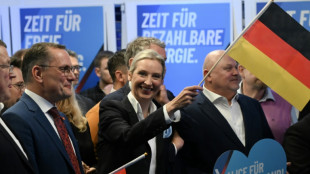
-
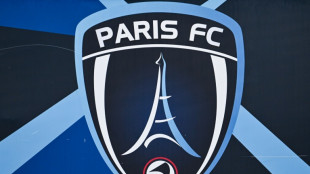 Billionaire-owned Paris FC win promotion and prepare to take on PSG
Billionaire-owned Paris FC win promotion and prepare to take on PSG
-
Teenager Antonelli grabs pole for Miami sprint race
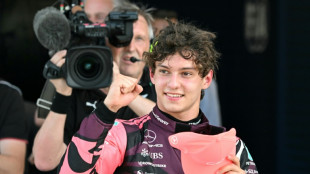
-
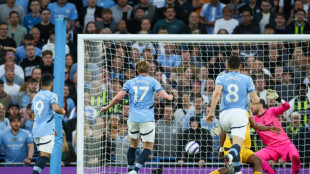 Man City climb to third as De Bruyne sinks Wolves
Man City climb to third as De Bruyne sinks Wolves
-
Mercedes' Wolff backs Hamilton to come good with Ferrari
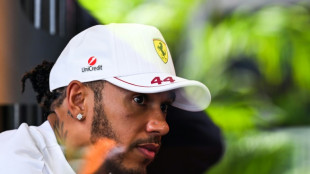
-
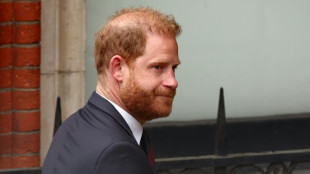 'Devastated' Prince Harry says no UK return but seeks reconciliation
'Devastated' Prince Harry says no UK return but seeks reconciliation
-
Elway agent death likely accidental: report
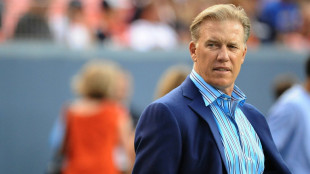
-
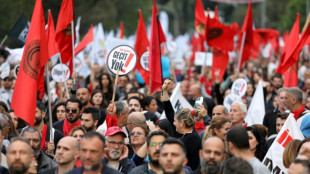 Turkish Cypriots protest new rule allowing hijab in school
Turkish Cypriots protest new rule allowing hijab in school
-
Germany's AfD dealt blow with right-wing extremist label
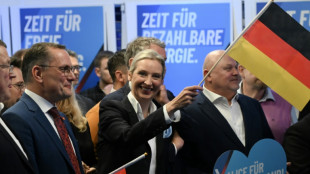
-
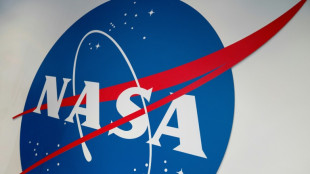 Trump NASA budget prioritizes Moon, Mars missions over research
Trump NASA budget prioritizes Moon, Mars missions over research
-
Hard-right romps through UK polls slapping aside main parties
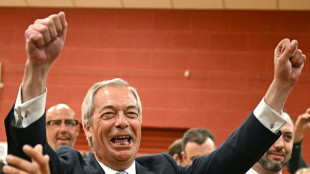
-
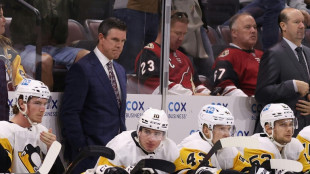 Rangers hire two-time NHL champion Sullivan as coach
Rangers hire two-time NHL champion Sullivan as coach
-
Haaland on bench for Man City as striker returns ahead of schedule
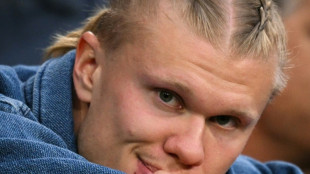
-
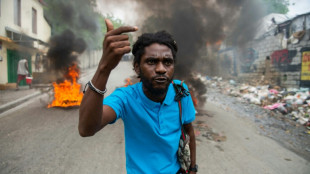 US designates two Haitian gangs as terror groups
US designates two Haitian gangs as terror groups
-
Lower profits at US oil giants amid fall in crude prices
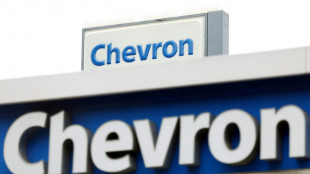
-
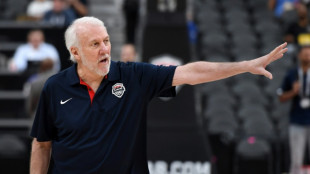 NBA icon Popovich stepping down as Spurs coach after 29 seasons
NBA icon Popovich stepping down as Spurs coach after 29 seasons
-
'Devastated' Prince Harry says no return to UK but seeks royal reconciliation
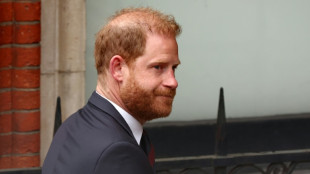
-
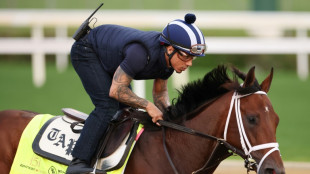 Grande scratched from Kentucky Derby
Grande scratched from Kentucky Derby
-
Carney vows to transform Canada economy to withstand Trump
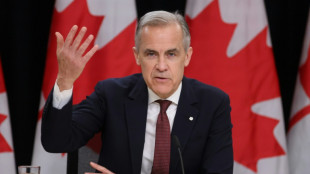
-
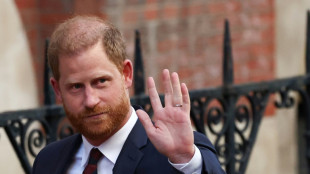 Prince Harry says he would 'love' to reconcile with family
Prince Harry says he would 'love' to reconcile with family
-
Major offshore quake causes tsunami scare in Chile, Argentina
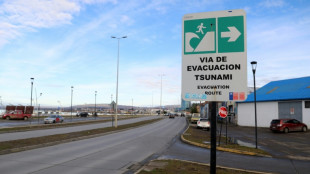
-
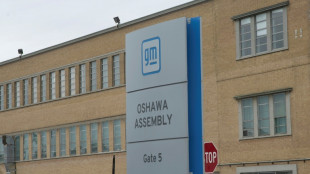 GM cuts shift at Canada plant over 'evolving trade environment'
GM cuts shift at Canada plant over 'evolving trade environment'
-
F1 extends deal to keep Miami GP until 2041
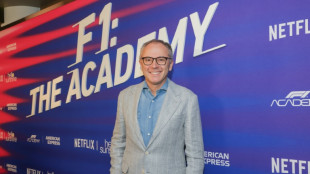
-
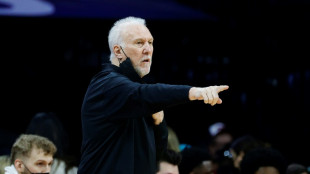 Popovich mixed toughness and spirit to make NBA history
Popovich mixed toughness and spirit to make NBA history
-
US asks judge to break up Google's ad tech business
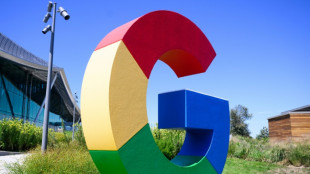
-
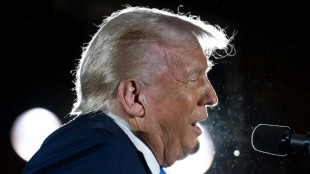 Trump eyes huge 'woke' cuts in budget blueprint
Trump eyes huge 'woke' cuts in budget blueprint
-
Ruud downs Cerundolo to book spot in Madrid Open final
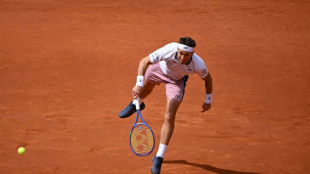
-
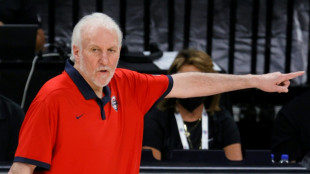 Gregg Popovich stepping down as San Antonio Spurs coach after 29 seasons: team
Gregg Popovich stepping down as San Antonio Spurs coach after 29 seasons: team
-
Guardiola to take break from football when he leaves Man City
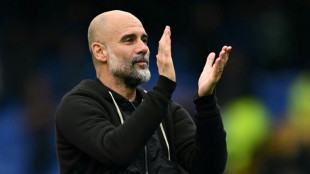
-
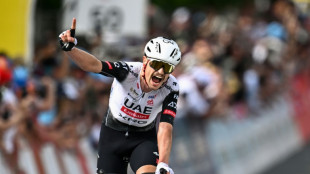 Vine escapes to Tour of Romandie 3rd stage win as Baudin keeps lead
Vine escapes to Tour of Romandie 3rd stage win as Baudin keeps lead
-
Olympic 100m medalist Kerley arrested, out of Miami Grand Slam meet
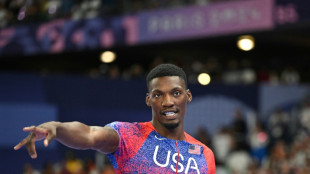
-
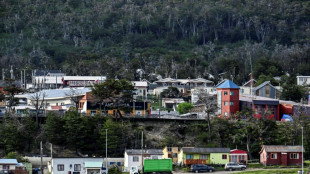 Chile, Argentina order evacuations over post-quake tsunami threat
Chile, Argentina order evacuations over post-quake tsunami threat
-
Arteta 'pain' as Arsenal fall short in Premier League title race
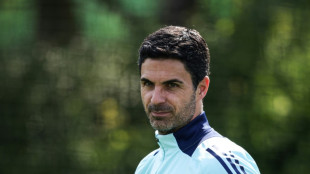
No clear favorite as Costa Ricans elect new president
Costa Ricans voted for a new president Sunday from a crowded field of candidates, with no clear favorite to tackle a worsening economy in one of Latin America's stablest democracies.
Twelve hours of voting kicked off at 6:00 am (1200 GMT) in what is frequently rated the region's "happiest" country, a tourist mecca and a leading green economy.
However, polls show unemployment, corruption and creeping living costs topping the concerns of 3.5 million eligible voters in the Central American country of five million people.
Unemployment has been steadily rising for more than a decade and reached 14.4 percent in 2021.
Poverty was at 23 percent last year, and a public debt at 70 percent of GDP has raised flags for multilateral agencies.
Costa Rica's problems have worsened with the Covid-19 pandemic dealing a hard blow to its critical tourism sector.
"Voting is the most important weapon we have to solve problems," said 35-year-old Francisco Zeledon, the first voter in line at his polling station.
"We have to solve poverty and create jobs for people," he said.
Polls showed about a third of voters undecided, faced with a choice from 25 presidential candidates.
But one trend was clear: the ruling Citizens' Action Party (PAC) appeared set for a bruising defeat amid sky-high anti-government sentiment.
Its candidate, former economy minister Welmer Ramos polled at only about 0.3 percent.
- Record unpopularity -
"The ruling party is completely weakened and has no chance" after two successive terms in office, said political analyst Eugenia Aguirre.
"The presidential unpopularity figure of 72 percent is the highest since the number was first recorded in 2013," she added.
This meant the country's traditional political heavyweights -- the centrist National Liberation Party (PLN) and the right-wing Social Christian Unity Party (PUSC) -- could return to the fore after decades of a near political duopoly only recently broken by the PAC.
According to polling, former president Jose Maria Figueres (1994-98) of the PLN was leading with about 17 percent of stated support, followed by the PUSC's Lineth Saborio on about 13 percent.
"This country has a million and a half people living in poverty and half a million in extreme poverty," Figueres said on Sunday.
"There is a housing shortage of 160,000 homes. We have never experienced these things in this magnitude."
Polls showed evangelical Christian singer Fabricio Alvarado Munoz of the right-wing New Republic Party (PNR) in third spot with just over 10 percent.
He commands support from the evangelical community, which makes up about 20 percent of Costa Rica's population.
Fourth-placed was economist Rodrigo Chaves of the newly formed centrist Social Democratic Progress Party with just over eight percent.
The highest-polling left-wing candidate was Jose Maria Villalta of the Broad Front with about 7.6 percent of stated support.
Presidents in Costa Rica cannot seek immediate re-election, leaving incumbent Carlos Alvarado Quesada out of the running.
- Problems have 'worsened' -
Costa Rica is known for its eco-tourism and green policies: its energy grid is entirely run on renewable sources.
Unlike many of its volatile Central American neighbors, Costa Rica has no army, has had no armed conflicts since 1948 and no dictator since 1919.
But the worsening economic situation has hit confidence in the political class.
Voters under 40 have only known "periods in which not only problems have not been resolved, but they have worsened," university student Edgardo Soto, an undecided voter, told AFP.
Apathy and abstentionism are features of Costa Rican elections.
In 2018, 34 percent of voters stayed away, though participation is technically obligatory.
Eugenia Zamora, president of Costa Rica's electoral tribunal, said Sunday's vote kicked off with high turnout in the morning, and proceeded without incident.
"This is a country with a robust democracy... It offers lessons for other countries," added Isabel de Saint Malo, head of the Organization of American States observer mission.
Outgoing president Alvarado, for his part, said Sunday's vote was an affirmation of Costa Rica's place among "the world's strongest democracies."
Costa Ricans also cast their vote Sunday for the 57-member Congress.
Initial results are expected about three hours after polls close at 6.00 pm.
If no single presidential candidate receives 40 percent of the ballots cast, there will be a runoff between the top two on April 3.
"I hope that whoever wins really thinks of the people," said 77-year-old Mayra Sanchez after voting in the canton of Moravia, "and not of themselves."
D.Moore--AMWN